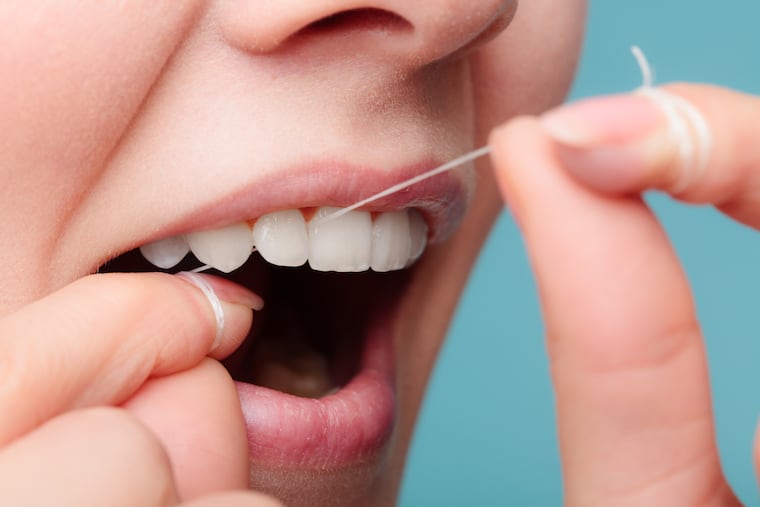7 tips to keep up your dental hygiene during stay-at-home orders | Expert Opinion
During stay-at-home orders mandated due to the coronavirus, dentists find themselves in the unique position of asking their patients to avoid routine visits to dental offices, if possible. Here are a couple of ways to do your best to keep up your dental hygiene at home.

During stay-at-home orders mandated because of the coronavirus, dentists find themselves in the unique position of asking their patients to avoid routine visits to dental offices, if possible. Here are a couple of ways to do your best to keep up your dental hygiene at home.
1. Step up your oral health game if your teeth are feeling fuzzy. At the bare minimum, you should be brushing your teeth in the morning and before bed, but if you are sitting at home after lunch do not be afraid to show those teeth and gums some extra love. With all the free time on our hands at home, is there any excuse to not using floss or breaking out that Waterpik? Now is when we can refocus our dental home-care routines and form new habits. Use all the tips and tricks your dental team has taught you. When in doubt do more, but gently. Remember that you are cleaning your mouth, not the bathtub grout.
2. Replace your toothbrush (or electric toothbrush head) more frequently. Also, keep it stored in a place where it can dry far away from the nastier spots in the bathroom (i.e. near the toilet). And while we are at it, do not share your toothbrush (or any other oral hygiene help) with loved ones. Cross contamination is a problem and we do not want to be spreading the viral love around.
3. Avoid hard foods. I’m talking about the sticky stuff, and the things that you hear yourself saying, “this is a bad idea but my 4-year-old kid just handed it to me.” The key is to skip the trip to the dentist, not cause one. Foods such as popcorn and other caramel covered, candy coated, crunchy confections are major culprits. I know many of us are unsuspectingly gaining weight — the “COVID 19” — but let it be from pasta and wine instead of that frozen Snickers. And remember, using your teeth as tools (such as to cut a fishing line) is bad; using your teeth carefully and with consideration when you cannot get in to see your dentist is better.
4. If you are having tooth sensitivity — chewing, temperatures or spontaneously — do your best to avoid those tender areas. This also applies to those who have been warned about cracked or weak teeth. Now is not the time to be testing things out, so leave those peanut chews alone and quit nervously chomping on ice. That goes for acidic food and drinks, too. (Put the lemon down and slowly back away.) If something is bothering you, follow this timeless advice: “If it hurts when you do [insert action here], do not do it.” Trauma to teeth and the discomfort that comes with it are often reversible, so pretend it is like a coughing neighbor and avoid it. See whether you can get things to progress positively. A tincture of time can solve a lot of problems, especially if you are careful. This is especially important if you are currently in temporary crowns, in the process of having care completed, or have experienced frequent chipping or breaking of your natural teeth.
5. Wear your night guard or retainers. And do not forget to clean them and allow them to air dry (away from your loving pets – you are going to regret when it becomes an expensive chew toy).
6. Still having sensitivity? Try at-home remedies. A warm saltwater rinse can help reduce bacteria and soothe tender gum tissues. Use a mix of equal parts hydrogen peroxide and water to decrease plaque formation and the potential for viral spread. Over-the-counter anti-inflammatory medications can lessen inflammation anywhere in the mouth and relax a tooth nerve after accidental trauma. Applying light pressure to a sore area inside your mouth with a comfortably warm peppermint tea bag or holding cold compresses against your mouth from the outside, can divert manageable discomfort and give you time to reevaluate the need to contact your dentist. Topical ointments from the toothbrush aisle are always a temporary option.
7. Know when to call your dentist. If anything teeth or gum related becomes disruptive to your normal daily routine, you should contact your dental professional. Teledentistry is a real thing these days and we will be happy to help any way we can.
As we navigate this new way of life, remember to be gentle, kind, and thorough. It does not matter whether we are talking about your teeth or your loved ones (or your dentist); now is the time for connection. So connect with your toothbrush (and your dentist when you need to) and keep that relationship strong. Here is to healthy mouths and beautiful smiles.
Todd Fleischman is a dentist and owner of Todd A.Fleischman, DMD & Associates in Center City Philadelphia. Follow him on Instagram at @centercityphillydentist.